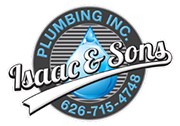Clean, pure water is more than just a necessity, it’s a central aspect of health and wellness in our homes. As water quality continues to be of concern, many homeowners are turning to water filtration systems to help ensure their water is safe and tastes great. In this blog post, we’ll walk you through the different types of water filtration systems, discuss the benefits they offer, and go over how to choose the right one for your home.
Types of Water Filtration Systems
1. Activated Carbon Filters
These water filtration systems are known for effectively removing chlorine, sediment, volatile organic compounds (VOCs), bad taste, and odor from water. As they’re reasonably priced and require little maintenance, they’ve emerged as a go-to choice for many homeowners.
2. Reverse Osmosis (RO) Systems
Reverse Osmosis Systems tend to offer a more comprehensive purification process, removing contaminants including fluoride, lead, and other dissolved solids. While they’re ideal for households seeking a high level of water purity, they do require more maintenance to keep them operating properly, and have a higher initial cost than some of the other filtration options.
3. Ion Exchange Filters
These particular filters are effective in softening hard water and getting rid of contaminants by exchanging ions with those found in the water. Ion Exchange Filters are especially useful for homes experiencing unresolved hard water issues, as they’re able to reduce scale build-up in pipes and appliances.
4. Ultraviolet (UV) Disinfection Systems
UV Disinfection Systems rely on ultraviolet light to destroy bacteria and viruses without needing to add chemicals to the water. As such, they’re efficient and environmentally-friendly, but still are most effective when used alongside other filtration systems that remove physical and chemical contaminants.
5. Sediment Filters
Sediment filters are used to remove sizable particles from water, including sand, dirt, and rust. They’re frequently installed as a pre-filter to safeguard and prolong the life of other filtration systems in the home.
Benefits of Water Filtration Systems
1. Improved Water Quality
One of the main benefits of water filtration systems is that they can substantially improve the taste, odor, and clarity of your water by removing contaminants and impurities.
2. Important Health Benefits
By removing harmful contaminants from the water, filtration systems can help lessen the risk of certain diseases and health issues connected with water that is contaminated.
3. Financial Impact
Investing in a water filtration system, while an initial expense, can end up saving you money in the long run by reducing the need for bottled water and extending the lifespan of your plumbing system by preventing scale build-up, corrosion, and similar problems.
4. Environmental Impact
Using a water filtration system reduces the need to use water bottles. This in turn cuts down on plastic waste and the harmful environmental impacts associated with its production and disposal.
How to Choose the Right System for Your Home
1. Water Quality Test
You’ll want to begin by comprehensively evaluating your water to pinpoint specific contaminants and figure out the level of filtration you need. This foundational step will help you choose a system that best addresses your unique water quality concerns in an effective manner.
2. Budget Considerations
Next, consider both the initial financial investment required and the ongoing maintenance costs of the system. While more thorough systems like Reverse Osmosis and Ultraviolet Disinfection may offer higher purity levels than some of the other options, they also come with higher monetary costs.
3. Water Usage and Size of Household
The size of your household and how much water you generally use should help guide the capacity and type of filtration system you choose. Larger families, or homes with high water usage, may benefit from more capable systems that can best handle the filtration demand.
4. Maintenance Requirements
It’s also important to thoughtfully consider the particular maintenance requirements of each system. Some systems, like Activated Carbon Filters, require more frequent filter changes, while others, such as Reverse Osmosis systems, may have higher long-term maintenance needs. You don’t want to end up selecting a system that you won’t be able to care for properly.
5. Professional Consultation
Consider consulting with a water treatment professional, such as ours here at Isaac & Sons Plumbing. We can provide valuable insights into the most ideal systems based on your particular water quality test results and specific needs. Our specialists are thorough, and committed to helping you determine the option that will ultimately serve you best.
Filtration Systems are Your Ally in Maintaining a Clean Water Supply
Water filtration systems offer a proactive and highly advantageous approach to making sure the water in your home is clean, safe, and has a great taste. From fairly basic Activated Carbon Filters to more advanced Reverse Osmosis Systems, the right water filtration system can improve your overall quality of life, provide health benefits, and even contribute somewhat to environmental conservation. By understanding the different types of systems available and considering your home’s specific needs, you can make an informed decision that allows you and your family to enjoy the purest water possible. To discuss your water quality and filtration needs, please give us a call at (626) 715-4748 or reach out online.








